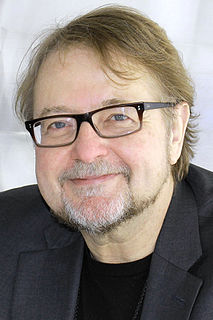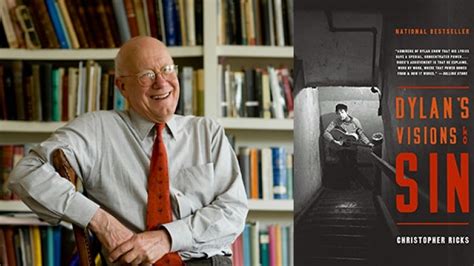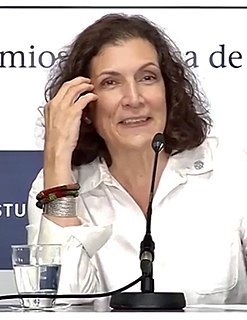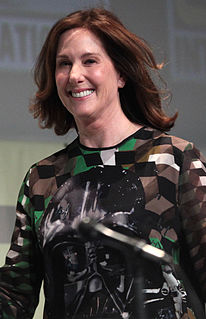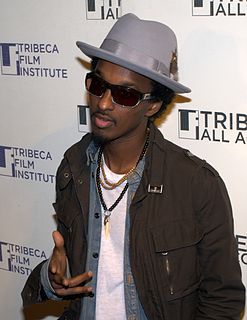Top 105 Translator Quotes & Sayings - Page 2
Explore popular Translator quotes.
Last updated on April 20, 2025.
When I was doing missionary work when I was younger, which started this obsession of mine with the literature of witness, I was a translator for a missionary group, and I spent years in a Tijuana dump. People were really thrown by the fact that the Mexican poor, many of them pureblood indigenous people, seemed happy.
All nonfiction writers, whether they like it or not, are translators. The translator is the perfect journalist. The best journalism endeavors to convey an essential idea or story to an audience that knows very little about it, and that requires translation. To do this successfully, the writer must filter the idea through the prism of his eye, and his mind, and his writing style.
I was in the second year of my PhD when I first had the idea - I'd recently started working as a translator, which meant firstly that I was hearing about amazing-sounding books from other translators, and also that I was getting enough of an insider's view of the publishing industry to be aware of all the implicit biases that made it so difficult for these books to ever get published, especially if they weren't from European languages (harder to discover, editors can't read the original, lack of funding programmes, authors who don't speak English).
The impresario functions as a bridge and a translator. He or she is a bridge between the creative point of view - which is often very focused on the creative task itself - and the resource-allocation process. The impresario has to make certain the funds and people required to get that task completed are available.
The fabliau, then, is a short story that is a tall story. It combines a burly blurting of dirty words with a reveling in humiliations that are good unclean fun. A popular venture that is keen to paste—épater—everybody (not just the bourgeoisie), it is the art of the single entendre. Highly staged low life, it guffaws at the pious, the prudish, and the priggish. High cockalorum versus high decorum…. The introduction here, like the translator’s note, tells well the story of the comic tales, anonymous for the most part, usually two or three hundred lines long, of which about 160 exist.
Translator Dlique was saying, very earnestly, “Eggs are so inadequate, don't you think? I mean, they ought to be able to become anything, but instead you always get a chicken. Or a duck. Or whatever they're programmed to be. You never get anything interesting, like regret, or the middle of the night last week.
In addition to pumping the blood of life within our bodies, we may think of the heart as a belief-to-matter translator. It converts the perceptions of our experiences, beliefs, and imagination into the coded language of waves that communicate with the world beyond our bodies. Perhaps this is what philosopher and poet John Mackenzie meant when he stated, "The distinction between what is real and what is imaginary is not one that can be finely maintained ... all existing thing are ... imaginary."
I traveled the world ten times over doing something I never thought I'd do in a million years. I found myself in Tokyo, Japan. I (was in) a Dell Computer commercial, the first thing I had ever done, and I fell in love with it. I fell in love with the green screens, I fell in love with (everything). The translator was explaining everything to me. It was a passion like I had never felt before. I came back and it took me five years to really accept that that was okay.
The language in New Mexico is very different. At first when you hear the speech here, you don't really know what to do with it, but then I just went with it, because as a writer as well as a translator I do believe that translated words are not different names for the same thing. They're different names for different things. I tried to stay as true as I could, so I used Ruben Cobos' dictionary of Southwestern Spanish, and when I went into Spanish I never assumed the word I would use would be the word a nuevomexicano would use.
These are crystalline - oftentimes incandescent - translations of Juarroz's powerful metaphysical poems where eternity and silence jut up against a world where “writing infects the landscape” and there are “more letters than leaves” - The kind of match one hopes for where both the translator and the poet are in luck; new poems which don't leak and yet old poems in which the original passion shines.
The producer, in effect, has to work as a translator. You form a very tight relationship with the director and writer from the beginning, and then you are constantly communicating to the various people that begin to come into the process, as you are trying to manage to hold on to a vision that needs to be communicated over a long period of time.
I think that if you are sticking to the text, essentially, you're not trying to write your own version of it. I mean, of course, it is your own version of it. And every translator would probably have a different version. But I think that that's what keeps the writers from being individual in English. They may be my English, but I don't think that Ferrante sounds like Levi.
I remember having a discussion with [Kaz] about his translation of the word shunyata as "boundlessness," instead of the more traditional "emptiness." I said: "Kaz, everyone is used to the word emptiness for shunyata. This might not sit well with people. He said: "Translator's prerogative!" Then he added, "One cannot assume we know what they meant...." I agreed.
Eve talking to someone on her computer and having trouble with the language translator....."I have two like crimes. Your data and your input on Leclerk would be very helpful"Marie pursed her lips and humor danced in her eyes."It says you would like to have sex with me. I don't think that is correct""Oh, for Christ sake" Eve slammed a fist against the machine.
I do think that some of my songs, like Take a Minute, are like the train between the two worlds. It starts out with the question of "how did Gandhi ever withstand the hunger strikes and all / he didn't do it to gain power or money as I recall," and its sweep reaches all the way to this part of the world. I think maybe I'm a translator, because I lived in both worlds and truly understand them. I understand the discontent that comes from not having. But I also understand the anxiety that comes from wealth and convenience.
The translator ... Peculiar outcast, ghost in the world of literature, recreating in another form something already created, creating and not creating, writing words that are his own and not his own, writing a work not original to him, composing with utmost pains and without recognition of his pains or the fact that the composition really is his own.
The arts are not a frill. The arts are a response to our individuality and our nature, and help to shape our identity. What is there that can transcend deep difference and stubborn divisions? The arts. They have a wonderful universality. Art has the potential to unify. It can speak in many languages without a translator. The arts do not discriminate. The arts lift us up.
Obviously there are many, many ways of being an outsider, but having immigrant parents is one of them. For one thing, it makes you a translator: there are all kinds of things that American parents know about life in America ,and about being a kid in America, that non-American parents don't know, and in many cases it falls on the kid to tell them, and also to field questions from Americans about their parents' native country.
An engineer can look at the data, but he needs a translator from the cockpit - the driver - to understand it completely. For example, only the driver can tell you why he abruptly takes his foot off the gas pedal at a certain point. The data doesn't necessarily tell the engineer whether the driver made a mistake at that point or the car was acting up. The information the driver provides often helps determine the direction of development.
I think the fact that my parents are still, "Hey, great, that's great!" and not, "We need you to do this and be a star!" - it was never like that. My mom's a translator, my dad's a woodworker; that's the world I grew up in, that's the world I'm most comfortable in. The whole idea of Hollywood or any of that other stuff that unfortunately goes along with film, that wasn't part of my upbringing, thankfully.
Translation is a kind of transubstantiation; one poem becomes another. You can choose your philosophy of translation just as you choose how to live: the free adaptation that sacrifices detail to meaning, the strict crib that sacrifices meaning to exactitude. The poet moves from life to language, the translator moves from language to life; both, like the immigrant, try to identify the invisible, what's between the lines, the mysterious implications.
Judge: And what is your occupation in general? Brodsky: Poet, poet-translator. Judge: And who recognized you to be a poet? Who put you in the ranks of poet? Brodsky: No one. And who put me in the ranks of humanity? Judge: Did you study it?...How to be a poet? Did you attempt to finish an insitute of higher learning...where they prepare...teach Brodsky: I did not think that it is given to one by education. Judge: By what then? Brodsky: I think that it is from God.
Actually, I'm frequently described as the UK's only translator of Korean literature, but even that isn't accurate - Agnita Tennant is UK-based, Janet Poole is British though lives in Toronto, Brother Anthony was born here though is now a naturalised Korean citizen. There's also Chi-young Kim and Sora Kim-Russell, who are younger and do fiction for commercial houses.
It is almost impossible to translate verbally and well at the same time; for the Latin (a most severe and compendious language) often expresses that in one word which either the barbarity or the narrowness of modern tongues cannot supply in more. ...But since every language is so full of its own proprieties that what is beautiful in one is often barbarous, nay, sometimes nonsense, in another, it would be unreasonable to limit a translator to the narrow compass of his author's words; it is enough if he choose out some expression which does not vitiate the sense.
My upbringing was pretty interesting. It was a rigorous, intellectual upbringing, but with the idea that we were a part of an important and legitimate enterprise. What that meant was sitting around the dinner table from a really early age with people from all different backgrounds who believed in God. When I was reporting in the wake of September 11th in Iraq and elsewhere, I felt I had the capacity to talk to people whose beliefs might sound outlandish to more secular journalists. I felt like I could be a translator between those two worlds.
Translated literature can be fascinating. There's something so intriguing about reading the text second hand - a piece of prose that has already been through an extra filter, another consciousness, in the guise of the translator. Some of my favorite writers who have written in English were doing so without English being their first language, so there's a sense of distance or of distortion there, too. Conrad. Nabokov. These writers were employing English in interesting ways.
